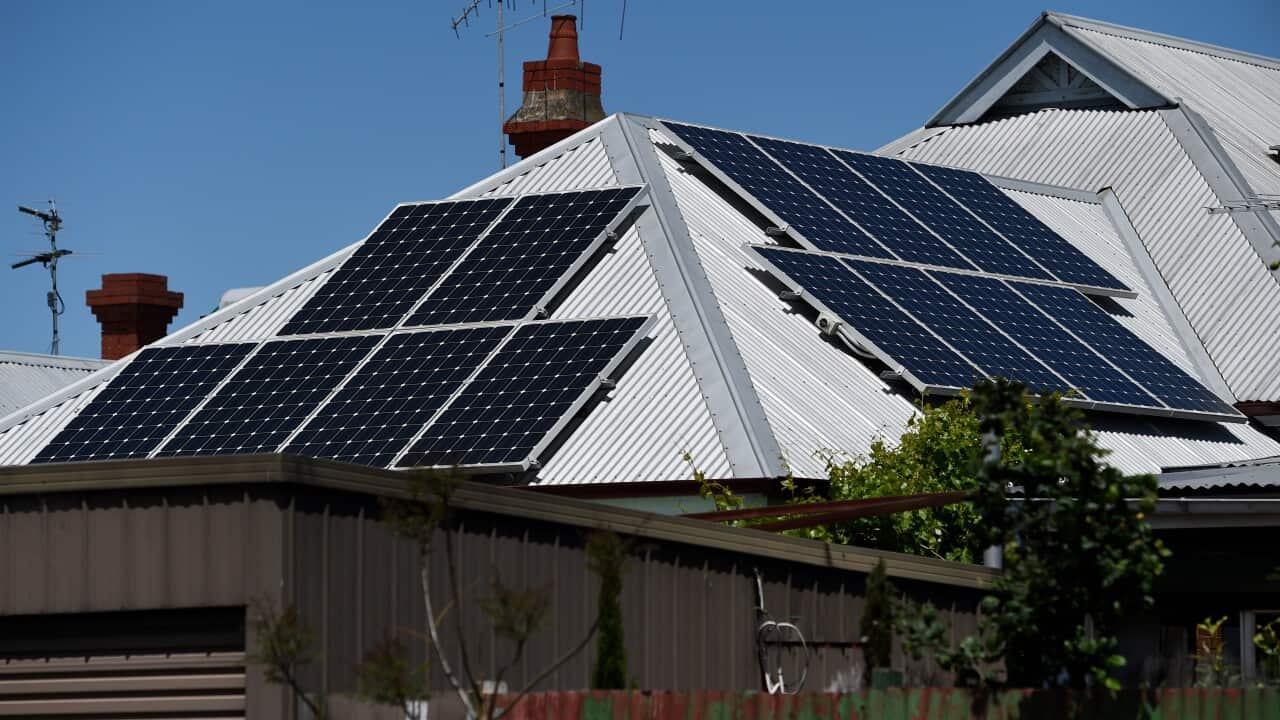Key Points
- Frontline workers will be equipped to report modern slavery under a new plan in NSW.
- The plan also calls for the removal of products made through modern slavery labour from NSW government contracts.
- Advocates are urging other Australian jurisdictions to adopt similar measures.
Advocates hope a new plan to combat modern slavery practices, such as forced labour and forced marriage, in NSW will be adopted in other Australian jurisdictions.
NSW Anti-slavery Commissioner James Cockayne launched the three-year plan as part of the legislative requirements of the NSW Modern Slavery Act, which came into effect on 1 January 2022.
Key elements of the plan include: banning goods linked to modern slavery in the procurement process involving NSW government agencies, equipping healthcare workers to report modern slavery incidents, and eventually setting up a hotline dedicated to collecting reports of incidents.
The package of measures marks a push to introduce tougher measures to target the use of goods made using forced labour in supply chains.
The federal introduced reporting requirements for companies on their supply chains, but results have been below optimal, with almost 50 per cent of companies in high-risk sectors not identifying widely reported modern slavery risks.
Modern slavery is a global problem, with the global prevalence at 50 million globally, representing a growth of 10 million in the last five years. In Australia, 40,000 people are estimated to be experiencing modern slavery, which includes practices such as debt bondage, human trafficking, sexual exploitation and forced labour.

The global incidence of modern slavery victims has increased by 10 million since 2018 to 50 million. The Asia-Pacific region has the highest number of people living in modern slavery. Credit: Walk Free The Global Slavery Index 2023
"This is an ambitious plan compared to business as usual, but not when compared to the size of the problem we are facing. There's no time to waste. It's time to take a stand to end modern slavery in New South Wales," he said.

Modern slavery survivor and Global Fund to End Modern Slavery CEO Sophie Otiende and NSW Anti-slavery Commissioner James Cockayne launched the new plan. Source: AAP / Dan Himbrechts
'Getting worse'
Mr Cockayne, an international lawyer, commenced his five-year term as NSW Anti-slavery Commission in August last year. His role is the first of its kind in Australia.
He said he wants to make sure the voices of survivors are at the centre of the government's response.
"We will be working with healthcare sector actors here in NSW to give them the skills and tools they need to be able to identify people who are at risk or who are being exploited. We will ensure we give them the health and support that they need," he said.
He said his office - even though it's still establishing a formal hotline - has already received multiple reports of modern slavery, particularly in regional NSW in sectors such as agriculture and meatpacking.
"The conditions that people are facing are the tightening cost of living pressures," he said.
"These are the kind of things that push people into situations of vulnerability."
"Forced marriage is the most reported form of modern slavery in NSW - it's about 40 per cent [of the reports we have received]. It is getting worse as economic conditions get harder for people."
Hopes other jurisdictions will follow lead of NSW
Kenyan-born advocate and child labour survivor Sophie Otiende is the CEO of the Global Fund to End Modern Slavery.
Helping to launch the NSW plan, she said she would like to see other Australian jurisdictions follow suit in adopting more proactive measures to stop modern slavery.
"This has been something that we have been asking governments and civil societies to do... and we want to commend NSW for doing that," Ms Otiende said.

The value of goods imported to Australia that have a connection with slavery is estimated to be US$17.4 billion. Credit: Walk Free Global Slavery Index 2023
"It is important that we are holding companies accountable, and for consumers to ask questions on what they are buying."
She said getting to the root of the problem would require a focus on social protections for women and girls who remain at higher risk of forced marriage and forced labour.
After the UK, Australia is rated as the second top nation by the anti-slavery Walk Free group in dealing with the response to modern slavery based on the legislation in place federally and in NSW. The group finds to tackle migrant worker exploitation and improve the willingness of victims to seek support. Nationally, there have only been 30 convictions for modern slavery offences.
The Walk Free Global Slavery Index 2023 found the Asia Pacific region has the highest number of people experiencing modern slavery at 29 million.
Those seeking help or to report an incident can contact the Australian Federal Police on 131 237 or the NSW Anti-slavery Commissioner's office at . In an emergency, call Triple Zero (000). You can also contact .



